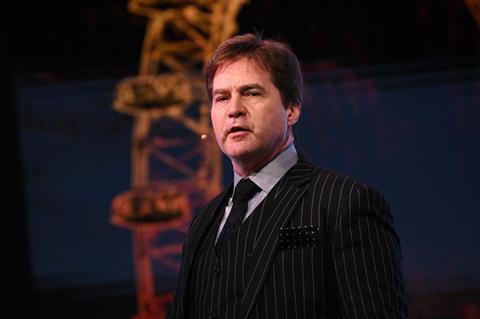The self-styled inventor of the Bitcoin digital currency has been accused of using the courts of several jurisdictions as a vehicle for fraud. The allegation was made yesterday at the beginning of closing statements in a High Court action brought against Australian-born computer scientist Dr Craig Wright, who claims to have originated bitcoin in 2008.
In the case, an alliance of mainly US-based software developers is seeking a court declaration that Wright is not ‘Satoshi Nakamoto’ and an injunction preventing him from further legal action based on that claim.
Wright’s closing statement maintains that he has the required skills, knowledge and qualifications to have created bitcoin under the Satoshi pseudonym and that allegations of 'forgery on an industrial scale' are based on misunderstandings of his working practices and bias on the part of expert witnesses.

In proceedings before Mr Justice Mellor in a crowded Court 26 of the Rolls Building yesterday, Jonathan Hough KC, for the Crypto Open Patent Alliance (COPA), accused Wright of continuing to forge documents even during the month-long trial itself. 'Dr Wright has committed serious fraud on this court in defending this claim. Dr Wright has lied and lied and lied,' Hough said.
To Wright’s objection that COPA’s solicitors, international firm Bird & Bird, had influenced the content of an expert witness report casting doubt on Wright’s initial ‘reliance documents’, Hough said: 'It is acceptable for lawyers to produce the first draft of a report for review, editing and preparation. The allegation that this undermined [the expert’s] independence is unfounded.'
In his oral and written submission, Hough also accused Wright of forging an email from his former solicitors, London firm Ontier, during the course of the trial. He dismissed Wright’s suggestion that the contested email had been spoofed by an 'unknown bad actor' as 'his most ridiculous cover story of all'.
Wright’s closing written submission states that: 'Even if the court harbours doubts about Dr Wright’s account, it should not make a finding on forgery against him based on evidence that was produced at great speed, and so could not fully address the detail of Dr Wright’s account.'
Hough told the court: 'If even some of COPA’s allegations of forgery are made good, this represents a serious abuse of the court systems of several jurisdictions. This is not some private matter in which a person has produced a false will or invoice to gain a financial advantage. It is the deliberate production of false documents to support false claims and use the courts as a vehicle for fraud.'
The trial continues.


























